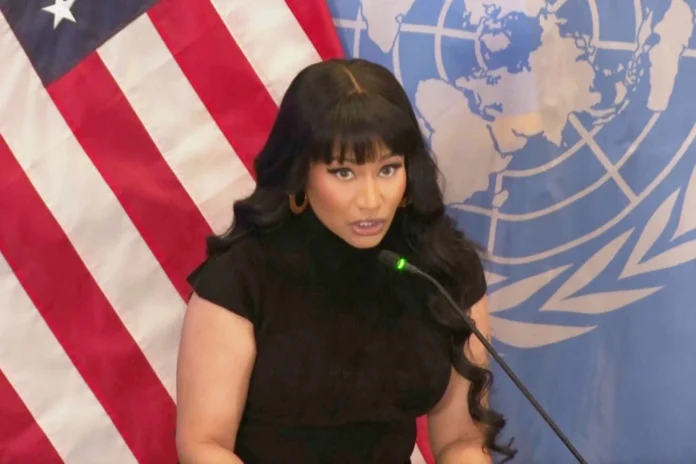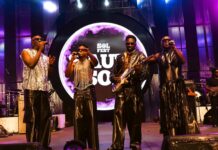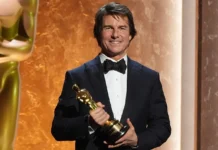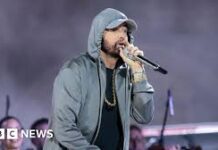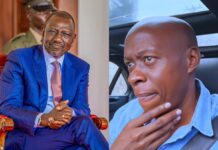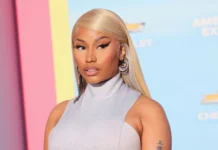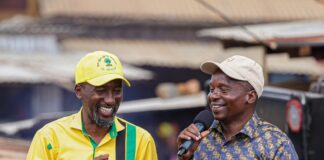BBC – Award-winning rapper Nicki Minaj has publicly backed President Donald Trump’s allegations that Christians face persecution in Nigeria.
“In Nigeria, Christians are being targeted,” Minaj said on Tuesday at an event organised by the US, adding: “Churches have been burned, families have been torn apart… simply because of how they pray.”
Analysts say that jihadists and other armed groups have waged campaigns of violence that affect all communities in the West African nation, regardless of background or belief.
This week alone, two people were killed in an attack on a church, while a group of 25 girls, who the BBC has been told are Muslim, were abducted from a school.
Two of the girls later managed to escape from their abductors. A teacher and a security guard – both Muslim – were also killed in the attack on the secondary school in the north-western Kebbi state.
Earlier this month, Trump said he would send troops into Nigeria “guns a-blazing” if its government “continues to allow the killing of Christians”.
Minaj, whose real name is Onika Tanya Maraj-Petty, told an event organised by the US embassy to the UN in New York that calling for the protection of Christians in Nigeria was “not about taking sides or dividing people… but about uniting humanity”.
“This is about standing up in the face of injustice. It’s about what I’ve always stood for,” she added.
The 42-year-old rapper, who has previously spoken of her Christian faith, thanked Trump for “prioritising this issue and for his leadership”.
The Nigerian government has pushed back on these claims, describing them as “a gross misrepresentation of reality”.
An official said that “terrorists attack all who reject their murderous ideology – Muslims, Christians and those of no faith alike”.
Other groups monitoring political violence in Nigeria say most victims of the jihadist groups are Muslims.
The country’s 220 million people are roughly evenly split between followers of the two religions, with Muslims in the majority in the north, where most attacks take place.
On Wednesday, Nigeria police in the south-western Kwara state confirmed a deadly attack on a church in the town of Eruku, where gunmen opened fire on worshippers the previous day, killing two people and abducting several others.
Local media say armed men, identified by residents as bandits, stormed the Christ Apostolic Church during an evening programme on Tuesday evening, shooting the pastor and rounding up the faithful at gunpoint.
Images and short video clips – believed to be from the church’s CCTV cameras – have circulated widely online, showing terrified people scrambling for safety, including an elderly woman seen desperately trying to escape the gunmen.
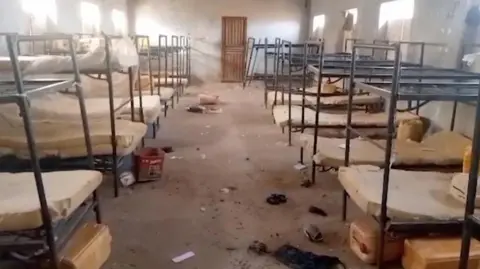
On Tuesday, President Bola Tinubu confirmed that jihadist forces had killed a senior army officer, after he had been captured in an ambush.
The Islamic State West Africa Province (Iswap) said on Monday its fighters had killed Brigadier General Musa Uba in the north-eastern state of Borno.
The Nigerian army had earlier denied that the officer had been abducted and killed.
The latest attacks have triggered frustration and anger across Nigeria, with many lamenting what they see as an unending wave of insecurity affecting rural communities, churches, schools and major transport routes.
In a statement on Wednesday, President Tinubu said he was “fully apprised of the recent uptick in violent extremism” across the country, adding that the surge had left him “depressed”.
He directed security agencies to respond with “urgency, clarity, and decisive action” to what he described as attacks by the “heartless terrorists”.
He also postponed his trip to the G20 summit in South Africa to deal with the wave of attacks.
Minaj described Nigeria as “a beautiful nation with deep faith traditions” and even acknowledged the “beautiful Barbz” – her fans – in the West African country.
The US ambassador to the UN, Mike Waltz, thanked the rapper for “leveraging her massive platform to spotlight the atrocities against Christians in Nigeria”.
For months, right-wing campaigners and politicians in Washington have been alleging that Islamist militants were systematically targeting Christians in Nigeria.
Deadly disputes are also often over vital resources like land and water or fuelled by inter-ethnic tensions, rather than religion, say analysts.
Last year Minaj publicly revealed that despite moving from her native Trinidad to New York at an early age, she still does not have US citizenship.
Her appearance at the UN on Tuesday is her highest-profile political intervention to date.
She made headlines during the pandemic for sharing disinformation about side-effects of the Covid vaccine – claiming that when a friend of her cousin had the jab, it caused his testicles to swell up and he became impotent.
“His friend was weeks away from getting married, now the girl called off the wedding,” Minaj wrote online.
Her comments were criticised by the UK’s chief medical officer at the time, and then-Prime Minister Boris Johnson also commented, joking: “I am not as familiar with the works of Nicki Minaj as I probably should be.”
In recent months, her years-long feud with fellow New York rapper Cardi B escalated to them trading insults about each others’ careers and family members.









